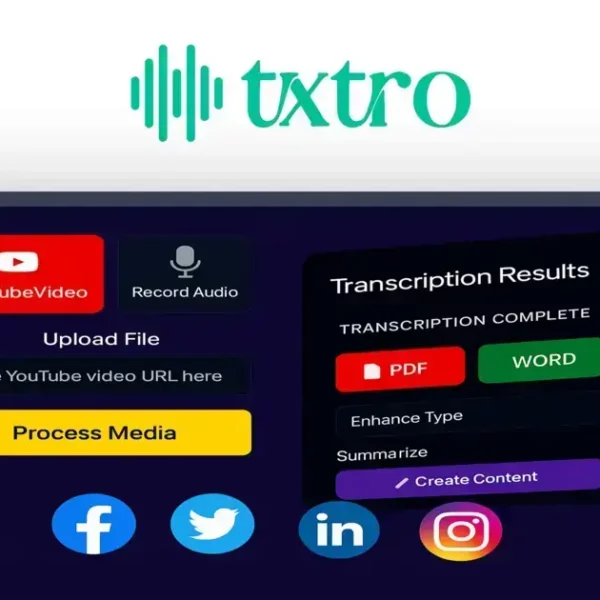CRM email marketing effectively combines customer data with personalized email campaigns, enhancing customer engagement and driving sales. By avoiding common mistakes and employing best practices, businesses can maximize their marketing efforts and build lasting relationships with their audience.
CRM email marketing has become a game-changer for businesses, helping them create personalized communication that resonates with customers. By leveraging customer relationship management systems, businesses can effectively segment their audience, improve engagement, and drive sales. In this post, we’ll delve into what CRM email marketing is, its benefits, and how you can optimize your strategies for maximum impact.
What is CRM Email Marketing?
CRM email marketing refers to the use of Customer Relationship Management (CRM) systems to enhance email marketing campaigns. These systems enable businesses to collect and manage customer data effectively, allowing for more personalized and targeted email communications. By integrating email marketing with a CRM, companies can improve their customer engagement and retention rates.
Understanding CRM Systems
CRM systems are designed to store customer information, track interactions, and analyze data to foster better relationships with customers. This data can include contact information, purchase history, preferences, and behaviors. By leveraging this information, businesses can create emails that speak directly to their customers’ needs and interests.
The Role of Email Marketing
Email marketing is a powerful tool for reaching out to customers, promoting products, and building brand loyalty. When integrated with CRM data, email campaigns can be tailored to specific customer segments, resulting in higher open and click-through rates. Sending relevant content ensures that customers feel valued and increases the likelihood of conversions.
Personalization in CRM Email Marketing
One of the key advantages of CRM email marketing is the ability to personalize messages. By using customer data, businesses can craft emails that are not only relevant but also engaging. Personalization can range from addressing customers by name to recommending products based on past purchases. This tailored approach significantly enhances customer experience and fosters loyalty.
Importance of Data Analytics
Data analytics plays a crucial role in optimizing CRM email marketing efforts. By analyzing customer responses and engagement metrics, businesses can fine-tune their strategies for better results. Insights gained from data can help in identifying trends, predicting customer behavior, and adjusting campaigns to meet customer expectations.
Benefits of Using CRM for Email Marketing

Utilizing a CRM for email marketing offers businesses numerous advantages that enhance their marketing efforts. These benefits help to create more effective campaigns, leading to increased sales and improved customer satisfaction.
Enhanced Customer Segmentation
One of the primary benefits of using a CRM is the ability to segment your audience based on various criteria. This segmentation allows businesses to tailor their email content to specific groups, ensuring that the right message reaches the right people at the right time. As a result, customers are more likely to engage with the content.
Improved Personalization
With a CRM, businesses can gather detailed information about their customers, including preferences and purchase history. This data enhances the personalization of emails. Personalized emails have been shown to generate higher open rates and conversions because they resonate more with the individual recipients.
Automated Campaign Management
A CRM system can automate many aspects of email marketing, such as sending emails based on triggers, scheduling campaigns, and tracking metrics. Automation saves time and reduces human error, allowing marketers to focus on strategy and creative content while ensuring that their emails are delivered on time.
Comprehensive Analytics
CRMs provide powerful analytics tools that help marketers track the performance of their email campaigns. Metrics such as open rates, click-through rates, and conversions can be monitored closely. This data helps businesses refine their campaigns over time and provides valuable insights into customer behavior.
Increased Customer Retention
When businesses utilize CRM email marketing effectively, they can foster stronger relationships with their customers. By sending relevant and timely emails, companies can keep their audiences informed and engaged, leading to increased customer loyalty and retention.
How to Optimize Your CRM for Email Campaigns
Optimizing your CRM for email campaigns is essential for improving the effectiveness of your marketing efforts. Here are some strategies to ensure your CRM is functioning at its best for email marketing.
1. Clean and Organize Your Data
Maintaining accurate and organized data is critical. Regularly update and clean your database to remove duplicates and correct errors. This ensures your emails reach the right audience and improves engagement rates.
2. Segment Your Audience
Use your CRM to segment your audience based on various factors like demographics, purchase history, and behavior. Segmentation allows for tailored messaging, which leads to higher open rates and conversions. Ensure you create segments that make sense for your campaigns.
3. Personalize Your Emails
Personalization can significantly impact the effectiveness of email campaigns. Use data from your CRM to address recipients by their names and suggest products based on their past purchases. Personalized emails create a stronger connection with your audience.
4. Automate Your Campaigns
Take advantage of automation features in your CRM. Set up triggered campaigns that send emails based on user actions, like cart abandonment or after a purchase. Automation saves time and ensures timely communication with your customers.
5. Monitor and Analyze Performance
Utilize the analytics tools in your CRM to monitor the performance of your email campaigns. Track metrics like open rates, click-through rates, and conversions. Use this data to refine your strategies and improve future campaigns.
Best Practices for Successful CRM Email Marketing

Implementing best practices for successful CRM email marketing is crucial to maximizing your campaign outcomes. Here are some key practices that can help you optimize your efforts.
1. Set Clear Goals
Before launching any email campaign, establish clear objectives. Whether it’s increasing sales, building brand awareness, or promoting a special event, having specific goals guides your strategy and helps measure success.
2. Build a Quality Email List
Focus on growing a high-quality email list. Use sign-up forms on your website and offer incentives like discounts or exclusive content to encourage subscriptions. Ensure that your list is composed of individuals who are genuinely interested in your products or services.
3. Craft Compelling Subject Lines
Your subject line is the first impression recipients have of your email. Make it catchy and relevant to entice readers to open the email. A/B testing different subject lines can provide insights on what resonates best with your audience.
4. Provide Valuable Content
Make sure the content of your emails is relevant and valuable to your audience. Share informative articles, tips, and special promotions that align with their interests. Engaging content fosters customer loyalty and encourages opening future emails.
5. Test and Optimize
Continuously test different elements of your email campaigns, such as layout, content, and sending times. Utilize A/B testing to see what works best for your audience. Use the insights gained to refine and enhance future campaigns.
6. Comply with Regulations
Ensure that your email marketing practices comply with regulations like GDPR and CAN-SPAM. Include unsubscribe options in your emails and respect user preferences. Compliance builds trust with your audience and avoids potential legal issues.
Common Mistakes to Avoid in CRM Email Marketing
Avoiding common mistakes in CRM email marketing can significantly enhance your campaign’s effectiveness. Here are some pitfalls to steer clear of when managing your email marketing efforts.
1. Neglecting Data Quality
Failing to maintain a clean and up-to-date database can lead to sending emails to invalid addresses. Regularly clean your email list to remove inactive accounts and correct any mistakes in contact information. Poor data quality can hurt engagement rates.
2. Overlooking Personalization
Many marketers neglect the importance of personalization. Sending generic emails without personalization makes it hard for recipients to connect with your message. Use CRM data to personalize emails based on customer preferences and behaviors.
3. Ignoring Mobile Optimization
A significant number of emails are opened on mobile devices. If your emails are not mobile-friendly, you risk losing potential customers. Ensure that your email design is responsive and looks good on all screen sizes to boost engagement.
4. Sending Too Many Emails
While staying in touch with customers is essential, bombarding them with too many emails can lead to fatigue and unsubscribes. Find a balance in your email frequency to keep your audience engaged without overwhelming them.
5. Failing to Analyze Results
Not analyzing the performance of your email campaigns can prevent you from understanding what works and what doesn’t. Utilize your CRM’s analytics tools to track essential metrics such as open rates, click-through rates, and conversions to improve future campaigns.
6. Disregarding Compliance Regulations
Compliance with email marketing regulations, like GDPR and CAN-SPAM, is crucial. Failing to include an unsubscribe option or not protecting user data can lead to legal issues and harm your reputation. Always ensure your emails comply with regulations.
In Summary: Maximizing CRM Email Marketing
Using CRM email marketing effectively can transform your business. With the right strategies, you can enhance customer engagement, increase sales, and build lasting relationships. Remember to maintain a clean database, personalize your messages, and analyze your results.
Avoid common pitfalls like overloading your audience with emails and neglecting mobile optimization. By implementing best practices and learning from your mistakes, you can create successful campaigns that resonate with your customers.
Embrace the power of CRM email marketing and watch your business flourish!
FAQ – Frequently Asked Questions about CRM Email Marketing
What is CRM email marketing?
CRM email marketing combines customer relationship management systems with email marketing to create targeted and personalized email campaigns.
How can I improve my email open rates?
You can improve open rates by crafting compelling subject lines, personalizing your emails, and segmenting your audience.
What are common mistakes in CRM email marketing?
Common mistakes include neglecting data quality, failing to personalize, and ignoring mobile optimization.
How often should I send marketing emails?
It’s important to find a balance; send emails frequently enough to stay in touch, but not so often that you overwhelm your subscribers.
How can I measure the success of my email campaigns?
You can measure success by analyzing metrics such as open rates, click-through rates, and overall conversion rates.
What should I do if people are unsubscribing from my emails?
If unsubscribes are increasing, review your content, email frequency, and ensure you are providing value to your subscribers.




